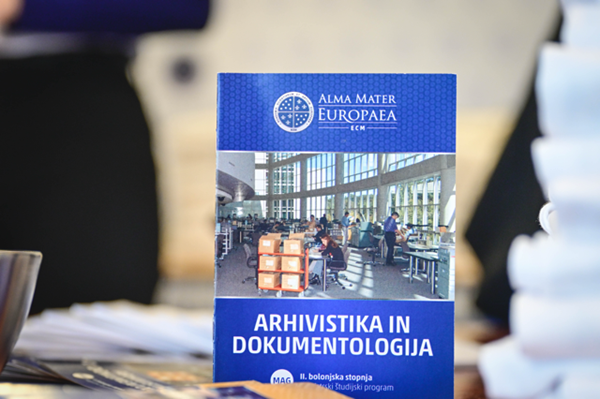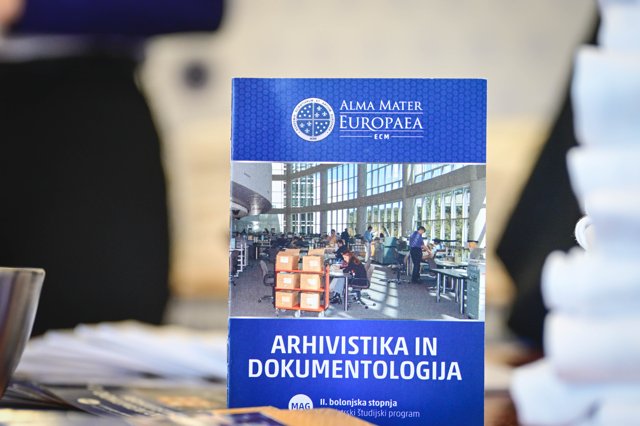
Alma Mater Europaea University United Global Archival Experts

The 34th International Archives Days 2024 and the 18th International School of Archival Sciences 2024 focus this year on two key topics: the relationship between archives and creators of archival documents and digitalization and artificial intelligence in archival theory and practice.
The first topic explores the relationships between various types of archives – state, local, and professional – and the creators of archival materials. "Different practices exist worldwide regarding transferring archival documents from creators to archival institutions, largely regulated by archival legislation. This legislation defines the procedures for transferring documents, often called transfer protocols. The organization of these processes depends on archival services and the recognition of archives as cultural institutions," explained Professor Dr. Peter Pavel Klasinc, Head of Archival Studies at Alma Mater Europaea University and Director of the IIAS (International Institute for Archival Science, Trieste/Italy – Maribor/Slovenia).
.jpg)

The archiving process includes preparing inventories of archival materials, which are created after the materials are transferred to archives and professionally organized. This involves technical and material interventions, such as disinfection, removal of inappropriate equipment, and the creation of informational tools facilitated by modern computing technology. Comparing these inventories, from the first ones created 50 or 70 years ago to contemporary ones, is particularly intriguing.
"An essential task of archives is ensuring public access to archival materials for research and use. Once handed over to the archives, materials must not be returned to the users," Dr. Klasinc emphasized.
.jpg)
Digitalization and Artificial Intelligence in Archival Practice
The second topic of this year's conference opens a discussion on integrating digitalization and artificial intelligence into archival work. Digitalization enables the quality use of documentary materials, but it is crucial to emphasize that archival documents must not be destroyed after digitalization. Digitalization also contributes to the development of individual creators of archival materials.
Artificial intelligence offers opportunities to optimize archival processes, such as classification, analysis, and information retrieval in extensive data collection. Renowned scientists in the field of archival science will discuss these topics over the coming days, providing participants with new insights and knowledge.

International Participation and the OPENARCH Project
Delegates from 16 countries, including Italy, Romania, Poland, Sweden, Ukraine, the USA, Slovenia, and others, are participating in the conference. A total of 23 presentations will be delivered, offering new specialized knowledge and opening discussions. At the 18th Autumn Archival School, lecturers from 11 countries will present 16 lectures.
A unique feature of this year's conference is the OPENARCH project, which, in collaboration with the Historical Archives of the European Union and with EU support, opens discussions on archives functioning in EU member states and candidate countries. The project aims to exchange experiences and present diverse practices in archival science.
"The conference and the school are important in developing archival science as an independent, academic, and interdisciplinary discipline. The research, lectures, and discussions that will take place until November 30 are crucial for its further advancement. We wish all participants a fruitful exchange of knowledge, successful discussions, and networking," concluded Dr. Klasinc.


